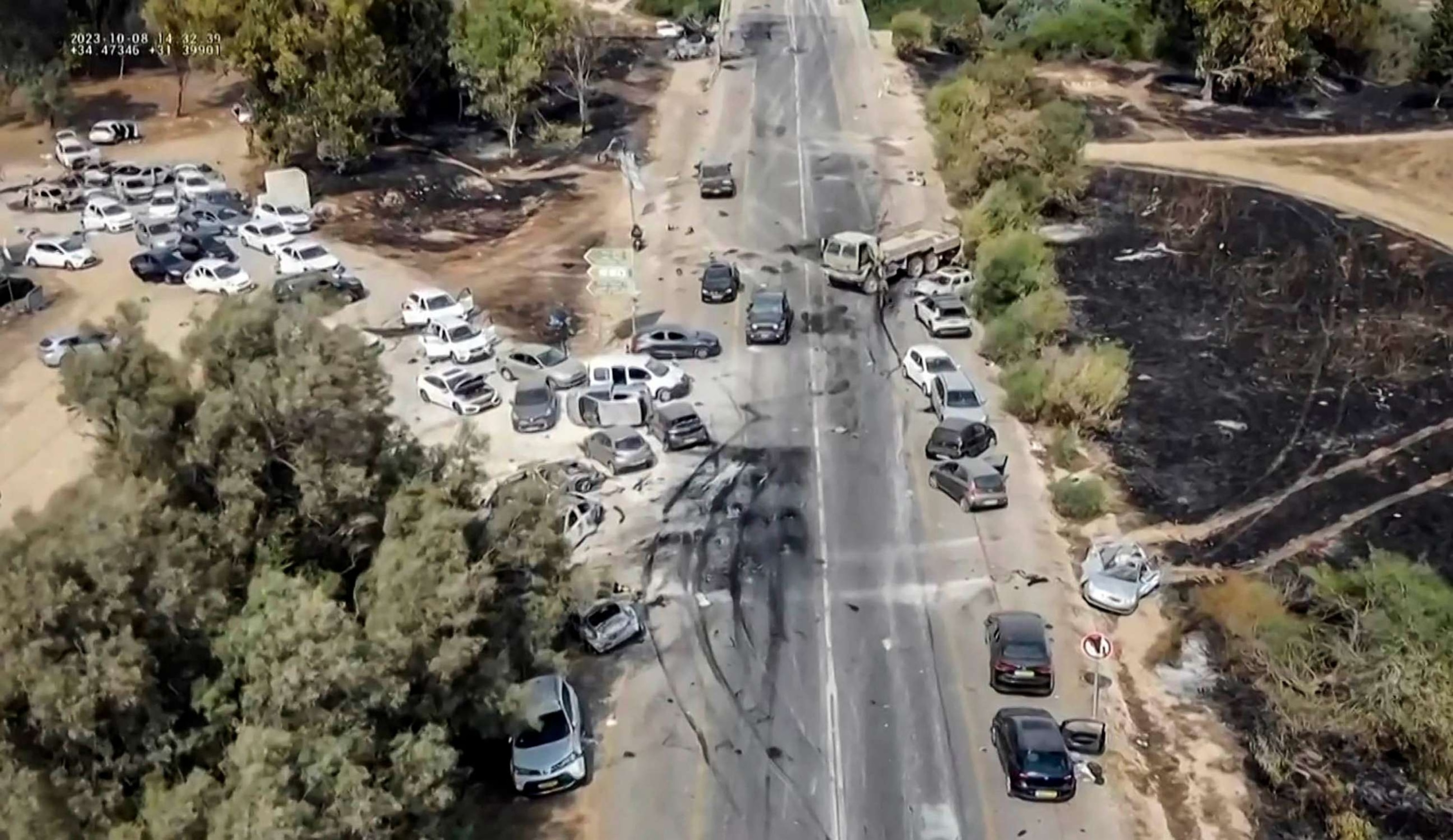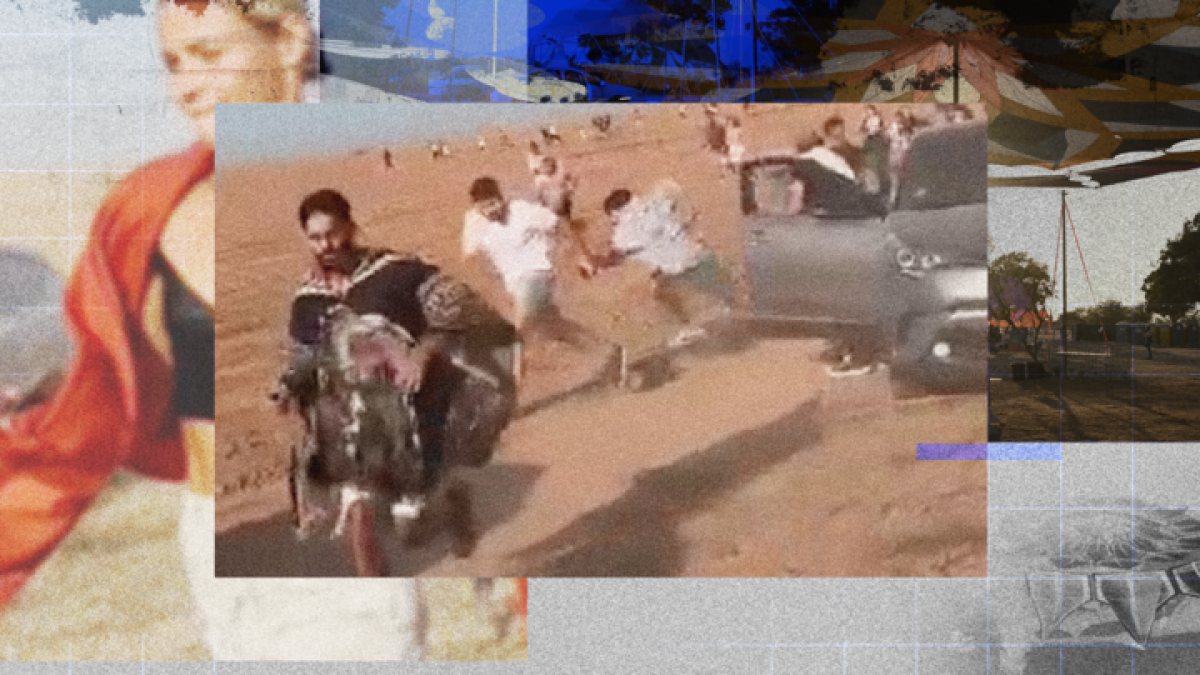The Supernova Music Festival Massacre has become one of the most talked-about events in recent years, capturing the attention of people worldwide. This tragedy brought to light critical issues surrounding public safety, event management, and the responsibility of organizers. The catastrophic incident shook the music festival industry, prompting a reevaluation of protocols and safety measures. As we delve deeper into this topic, we aim to explore the events leading up to the tragedy, the aftermath, and the lessons learned.
The Supernova Music Festival was initially envisioned as a celebration of music, culture, and unity. However, the festival's tragic ending left an indelible mark on its participants and the broader community. Understanding the causes and consequences of the massacre is essential in preventing similar incidents in the future. This article will provide a comprehensive analysis of the event, examining its origins, the factors that contributed to the disaster, and the steps being taken to ensure public safety at large-scale gatherings.
Our goal is to shed light on the Supernova Music Festival Massacre while maintaining a respectful and informative tone. By analyzing the event from various perspectives, we hope to provide readers with a thorough understanding of the tragedy and the measures being implemented to avoid such occurrences in the future. Join us as we explore the complexities of this unfortunate event and its lasting impact on the music festival industry.
Read also:Tanner And Deb Smikle A Journey Of Love And Resilience
Table of Contents
- Introduction to Supernova Music Festival
- Background of the Event
- Key Contributing Factors
- Security and Safety Protocols
- Aftermath and Impact
- Lessons Learned
- Public and Official Reactions
- Legal and Regulatory Actions
- Preventing Future Tragedies
- Conclusion and Next Steps
Introduction to Supernova Music Festival
The Supernova Music Festival was established as an annual event designed to bring together music enthusiasts from all walks of life. Organizers envisioned it as a platform for artists to showcase their talents while fostering a sense of community among attendees. Over the years, the festival grew in popularity, attracting thousands of participants from around the globe.
Origins of the Festival
The festival's origins can be traced back to a small local gathering that quickly gained traction due to its unique atmosphere and diverse lineup of performances. As its reputation grew, the Supernova Music Festival expanded its reach, incorporating international artists and offering a broader range of activities for attendees.
Why It Became Popular
Several factors contributed to the festival's popularity, including its commitment to inclusivity, diverse musical genres, and emphasis on creating a welcoming environment. However, as the festival's size increased, so did the challenges associated with managing such a large-scale event.
Background of the Event
The Supernova Music Festival Massacre occurred during the festival's peak attendance period, when tens of thousands of people gathered to enjoy the performances. What was supposed to be a joyous occasion turned into a nightmare as chaos erupted, resulting in multiple casualties and injuries.
Timeline of Events
- The festival began on a high note, with enthusiastic attendees enjoying the opening acts.
- Midway through the festival, reports of overcrowding and insufficient security measures began to surface.
- The situation escalated when a stampede occurred, leading to panic and confusion among the crowd.
Key Contributing Factors
An investigation into the Supernova Music Festival Massacre revealed several contributing factors that led to the tragedy. These factors highlight the importance of proper planning and execution when organizing large-scale events.
Overcrowding
One of the primary issues was overcrowding, which put immense pressure on the festival's infrastructure and resources. The sheer number of attendees overwhelmed the available facilities, leading to bottlenecks and unsafe conditions.
Read also:Exploring The Memorable Characters In Major League
Inadequate Security Measures
Another critical factor was the lack of adequate security measures. Insufficient staffing and poorly implemented protocols left the festival vulnerable to potential threats, ultimately contributing to the disaster.
Security and Safety Protocols
In the wake of the tragedy, experts have emphasized the importance of robust security and safety protocols for large-scale events. These protocols are designed to ensure the well-being of attendees and minimize the risk of similar incidents occurring in the future.
Best Practices for Event Security
- Implementing crowd control measures to prevent overcrowding.
- Providing adequate medical and emergency services on-site.
- Conducting thorough risk assessments and contingency planning.
Aftermath and Impact
The aftermath of the Supernova Music Festival Massacre was felt by all those involved, including attendees, organizers, and the broader community. The tragedy served as a wake-up call for the music festival industry, prompting a reevaluation of safety standards and practices.
Emotional Toll on Attendees
Many attendees were left traumatized by the events, struggling to cope with the loss of loved ones and the harrowing experience of being caught in the chaos. Support services were established to help those affected by the tragedy.
Economic Impact
The festival's cancellation and subsequent legal actions had a significant economic impact on the organizers and local businesses that relied on the event for revenue. This financial strain further highlighted the need for better planning and risk management.
Lessons Learned
The Supernova Music Festival Massacre provided valuable lessons for event organizers and stakeholders in the music festival industry. By examining the causes and consequences of the tragedy, we can identify areas for improvement and implement changes to enhance safety and security at future events.
Improving Communication Channels
Effective communication is crucial during large-scale events. Establishing clear lines of communication between organizers, security personnel, and attendees can help prevent misunderstandings and ensure a swift response to emergencies.
Enhancing Emergency Response Plans
Developing comprehensive emergency response plans is essential for addressing unforeseen circumstances. These plans should include detailed procedures for handling various scenarios and ensuring the safety of all participants.
Public and Official Reactions
The public and official reactions to the Supernova Music Festival Massacre were varied, with many calling for accountability and stricter regulations. Government bodies and industry leaders responded by implementing new guidelines and standards for event organization.
Public Outcry for Change
Following the tragedy, there was a significant public outcry demanding changes to how large-scale events are managed. This sentiment was reflected in social media campaigns and petitions calling for improved safety measures.
Official Investigations and Reports
Government agencies launched investigations into the incident, resulting in detailed reports outlining the shortcomings of the festival's organization and recommendations for improvement.
Legal and Regulatory Actions
Legal and regulatory actions were taken in response to the Supernova Music Festival Massacre, holding those responsible accountable for their actions. These actions included lawsuits, fines, and the introduction of new regulations governing the music festival industry.
Legal Proceedings
Several lawsuits were filed against the festival organizers, alleging negligence and inadequate safety measures. These legal proceedings sought to provide justice for the victims and their families.
New Regulations
In response to the tragedy, new regulations were introduced to govern the organization of music festivals and other large-scale events. These regulations aim to enhance safety and security while promoting transparency and accountability.
Preventing Future Tragedies
Preventing future tragedies requires a collaborative effort from all stakeholders involved in the music festival industry. By learning from the Supernova Music Festival Massacre and implementing best practices, we can create safer environments for attendees and organizers alike.
Collaboration Between Stakeholders
Encouraging collaboration between event organizers, government agencies, and industry experts can lead to the development of more effective safety measures and protocols. Sharing knowledge and resources will help improve the overall quality of events.
Continuous Improvement and Innovation
Embracing innovation and continuously improving existing practices will ensure that the music festival industry remains at the forefront of safety and security. Investing in new technologies and methodologies can help mitigate risks and enhance the attendee experience.
Conclusion and Next Steps
The Supernova Music Festival Massacre was a tragic event that highlighted critical issues surrounding public safety and event management. By examining the causes and consequences of the tragedy, we can work towards preventing similar incidents in the future. The lessons learned from this experience will undoubtedly shape the music festival industry for years to come.
We encourage readers to share their thoughts and experiences in the comments section below. Additionally, consider exploring other articles on our site for more insights into the world of music festivals and event organization. Together, we can strive for a safer and more enjoyable experience for all participants.


